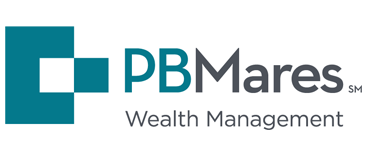Navigating the shift from college to adulthood can be challenging, especially when it comes to financial management. There’s a lot to learn and saving money for later is easy to put off. With the right tools and strategies, young professionals can secure a strong financial future. Contributing early to retirement plans and managing credit, savings, and student loans can make a big difference in long-term financial health.
Tip 1: Establish an Emergency Fund within a High-Yield Savings Account
An emergency fund is a savings account set aside for unexpected expenses of emergencies, such as job loss, medical bills, or car repairs. It’s generally recommended to have three to six months’ worth of living expenses saved in an emergency fund.
A high-yield savings account typically offers a higher interest rate compared to a traditional savings account, which can help the emergency fund grow faster.
By keeping an emergency fund within a high-yield savings account, money grows faster, offering peace of mind for unexpected expenses. And high-yield savings accounts also offer easy access to funds in case of an emergency.
Tip 2: Contribute to a Retirement Plan
Retirement plans, such as a 401(k), 403(b), or an individual retirement account (IRA), may provide tax benefits and compound interest over time, helping the savings grow faster.
An employer match is a contribution that the employer makes to an employee’s retirement plan, typically based on a percentage of the employee’s own contributions. Many employers offer the incentive of a match to encourage employees to save for retirement. It’s also a way for employers to provide additional employee benefits.
It is important to note that employer match and employer benefits may vary from company to company and can include conditions such as a vesting schedule. This is where the employer contributions are only available after a certain length of service. Human Resources departments will have specific information about that employer’s plan.
Tip 3: Open a Roth IRA
A Roth IRA is a type of individual retirement account that offers several benefits including tax-free growth on investments. The money contributed to a Roth IRA is made with after-tax dollars. Most young professionals may be in some of the lowest tax bracket years of their lives during their early careers. If a higher tax bracket later in life seems likely, contributing after-tax dollars to a Roth IRA can be a good idea. In 2023, the Roth IRA contribution limit is $6,500 or $7,500 for individuals aged 50 and older.
Saving for retirement early allows taxpayers to take advantage of compounding growth, which allows savings to increase over time. This can help to build a larger nest egg for retirement years or use contributions for a first-time home purchase (up to $10,000).
Tip 4: Manage a Student Loan Repayment Schedule
Student loans can sometimes be the largest portion of a monthly budget. Managing and paying off student loans can be a complex process, but with a budget, making extra payments, and considering loan consolidation or refinancing, young professionals can make informed decisions about their debt and take control of their financial future.
A major benefit for many young professionals in SECURE 2.0 is the student loan match. This change goes into effect on January 1, 2024. Essentially, payments made to student loans (up to a certain percentage of salary) can qualify for an employer match to the company retirement plan. Young professionals can pay down their student loans and save for retirement.
More information on this beneficial change will be released later this year.
Tip 5: Using Credit Wisely
Credit and credit cards can be powerful financial tools when used responsibly. Using a credit card and making timely payments can help build a credit score, which can be important when accessing other financial products and services, such as loans or mortgages.
Many credit cards offer rewards like cashback, miles, or points, for making purchases. These rewards can add up over time and provide a valuable return on spending.
If young professionals have the discipline to stay within their means and use a credit card responsibly, it can help to manage their finances, build credit, and earn rewards on spending.
In their early twenties, it’s common for young professionals to be somewhat shortsighted with their financial goals; however, this approach can often be problematic in the long run. There are several strategies that can help long-term financial success. By implementing these tips early, you can make informed decisions and build a solid foundation as you begin your career.
About the Author:




